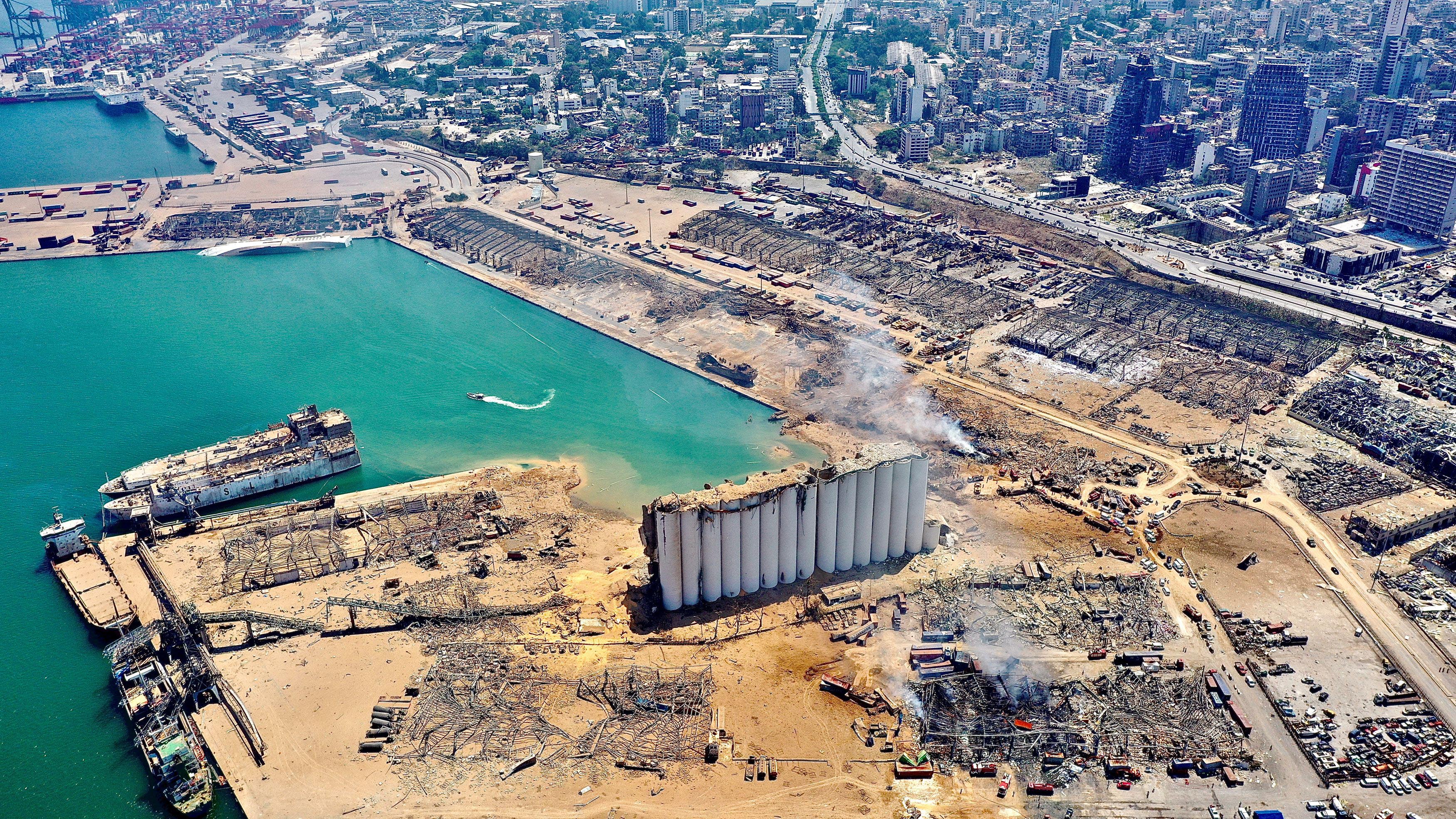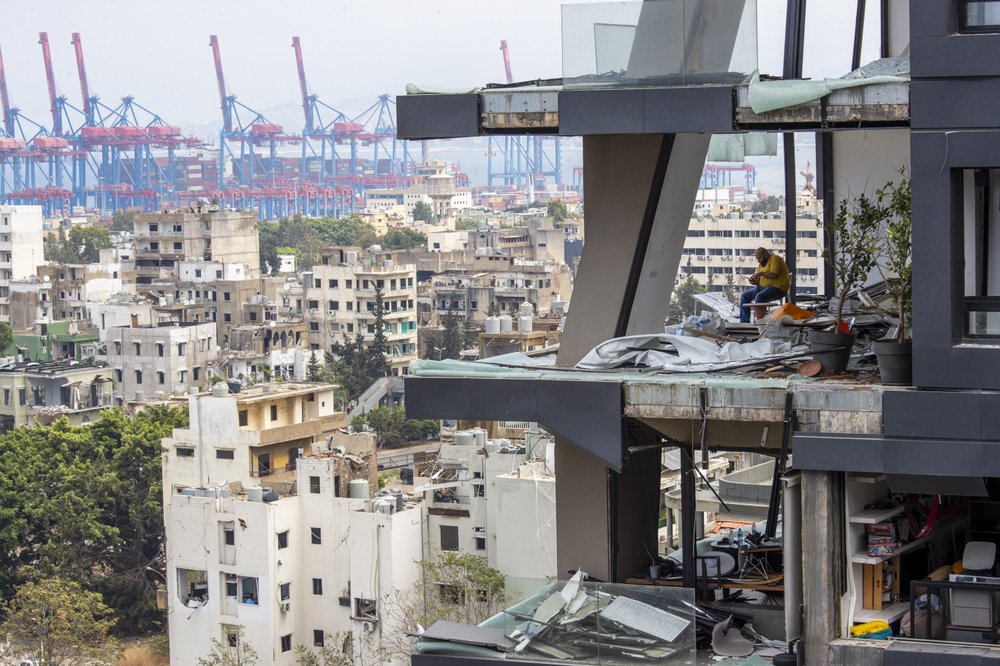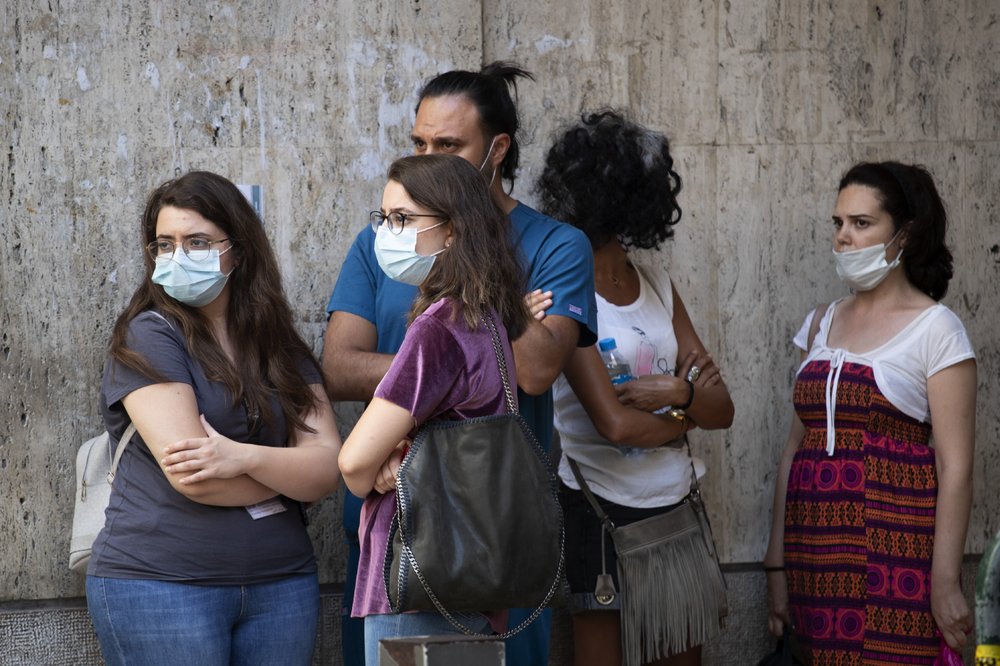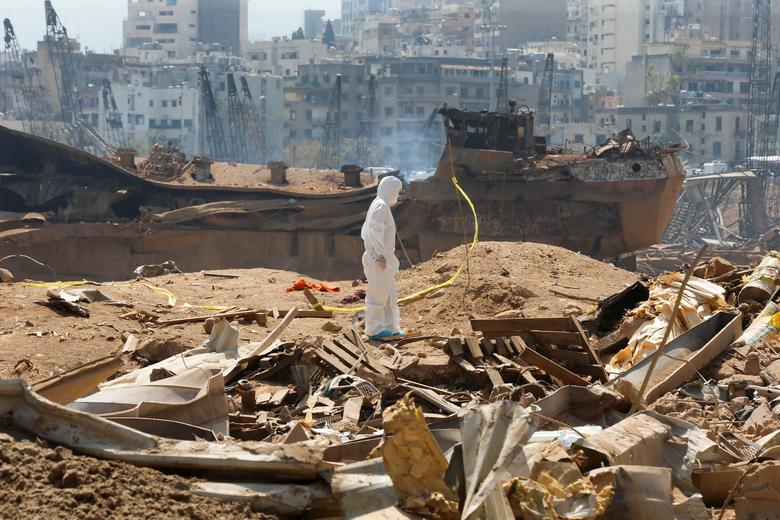Editor's note: This is the 97th article in the COVID-19 Global Roundup series. Here is the previous one.
A warehouse loaded with 2,750 tonnes of ammonium nitrate exploded for the first time and then a second time in Beirut, Lebanon on Tuesday.
The devastating explosion rippled across the Lebanese capital, killing at least 135 people, injuring more than 5,000 and causing widespread destruction.
02:20

The deadly explosion adds another layer to Lebanon's ongoing economic crisis and anti-government protests, and all these are unfolding under the background of a global coronavirus pandemic.
Hospitals already strained by the coronavirus pandemic now have thousands of injuries flooding in. One near the Beirut port was so badly damaged by the blast that patients had to be transferred to nearby fields.
Experts fear that it might accelerate the country's coronavirus outbreak. Thousands of Beirut residents have been forced to move in with relatives and friends after their homes were damaged. Social distancing is now the last thing on their mind.
Authorities had largely contained the outbreak by imposing a sweeping lockdown in March and April, but case numbers have risen in recent weeks. As of Saturday, Lebanon has reported 5,951 confirmed cases of COVID-19, and the 70 deaths.
The explosion happened on the first day since the country ended a five-day lockdown. A renewed lockdown was to go in effect this week, but those plans were canceled after the explosion.
Dr. Firas Abiad, director-general of Rafik Hariri University Hospital, the public hospital leading the coronavirus fight, told CBS that he anticipated an increase in cases in the next 10 to 15 days linked to crowding at hospitals and blood donation centers after the blast.
"We desperately need aid, not only us but all hospitals in Lebanon," Abiad added.

A man sits between debris inside his house damaged by Tuesday's explosion in the seaport of Beirut, Lebanon, August 7, 2020. /AP
A man sits between debris inside his house damaged by Tuesday's explosion in the seaport of Beirut, Lebanon, August 7, 2020. /AP
However, Lebanon's crisis predates the virus, which has only accelerated poverty and unemployment rates, now at 45 percent and over 30 percent, respectively.
Before the coronavirus, Lebanon was already going through its worst economic and financial crisis, crippling its hospital system.
The American University Medical Center, one of the oldest and most prestigious university hospitals in Lebanon, laid off hundreds of its staff last month.
Losses from the blast are estimated to be between 10 billion to 15 billion U.S. dollars, Beirut Governor Marwan Abboud told the Saudi-owned TV station Al-Hadath on Wednesday, adding that nearly 300,000 people are now homeless.
Lebanon is highly dependent on imports, which will bear a toll as its most important port destroyed. There have already been fears of shortages of food and medical supplies.
"There will clearly have an economic blow to Lebanon," said Gu Zhenglong, council member of Middle East Studies Institute, Shanghai International Studies University. "And the psychological effects of the unprecedented explosion can be bigger."
The fact that the massive toll results from the incompetence of the government will have a bigger psychological effect on people in the middle of the anti-government protests since last year.
Related reading:
Protests break out in Beirut as explosion sparks mounting anger
Lebanon unrest explained

Lebanese former employees of the American University Medical Center attend outside the hospital after they were dismissed from their jobs in Beirut, Lebanon, July 17, 2020. /AP
Lebanese former employees of the American University Medical Center attend outside the hospital after they were dismissed from their jobs in Beirut, Lebanon, July 17, 2020. /AP
The investigation into the explosion is focused on how 2,750 tonnes of ammonium nitrate, a highly explosive chemical used in fertilizers, came to be stored at the port facility for six years, and why nothing was done about it.
Sixteen people are under custody for the investigation, but no government entities have taken responsibility for the failure of governance.
Multiple stakeholders muscling in
What makes it even more difficult for Lebanon to stave off collapse is the complicated regional dynamics around the nation, said Gu.
Among regional powers, Iran is certainly the most influential in Lebanon. Hezbollah, which is a designated terrorist group by the EU, has a stake in the government and its own militias.

A forensic inspector walks on rubble at the site of Tuesday's blast, at Beirut's port area, Lebanon, August 7, 2020. /Reuters
A forensic inspector walks on rubble at the site of Tuesday's blast, at Beirut's port area, Lebanon, August 7, 2020. /Reuters
While Hezbollah is busy exonerating itself from the blast, the French are holding the international aid conference online, collaborating with the United Nation to raise funding to support Lebanon's reconstruction.
It is no coincidence that French President Emmanuel Macron became the first western head of state to tour the remains of the blast site on Thursday. France's ties with Lebanon go back to the time when the Ottoman Empire collapsed after World War I. France was handed a mandate to administer the infrastructure of Lebanon by the League of Nations, the predecessor to the United Nations.
Those ties remained in place after Lebanon's independence in 1943. Parts of the country still speak French and many schools teach French. Based on the country's agreement after independence, the president has to be a Christian. Christians, who make up 40 percent of the population, still see France as their protecting power to some extent.
On Sunday, Lebanon's Christian Maronite Patriarch Bechara Boutros al-Rai called on the cabinet to resign if it cannot "change the way it governs" the country.
However, Prime Minister Hassan Diab is trying to buy himself more time by proposing an early election, but it can happen only when all major parties reach an agreement.
Diab came into power with a Sunni background, which represents 27 percent of the population. But he did not win support from his own community, but from Hezbollah.
"There is the risk that the current crisis will quickly spiral out of control and turn into some kind of conflict between religious confessions," Maximilian Felsch of the Haigazian University in Beirut said.
On one hand, there are Christians, who are now asking for France's protection, and on the other, there are Shiites, who are keen on maintaining Hezbollah's influence exerted by Iran.